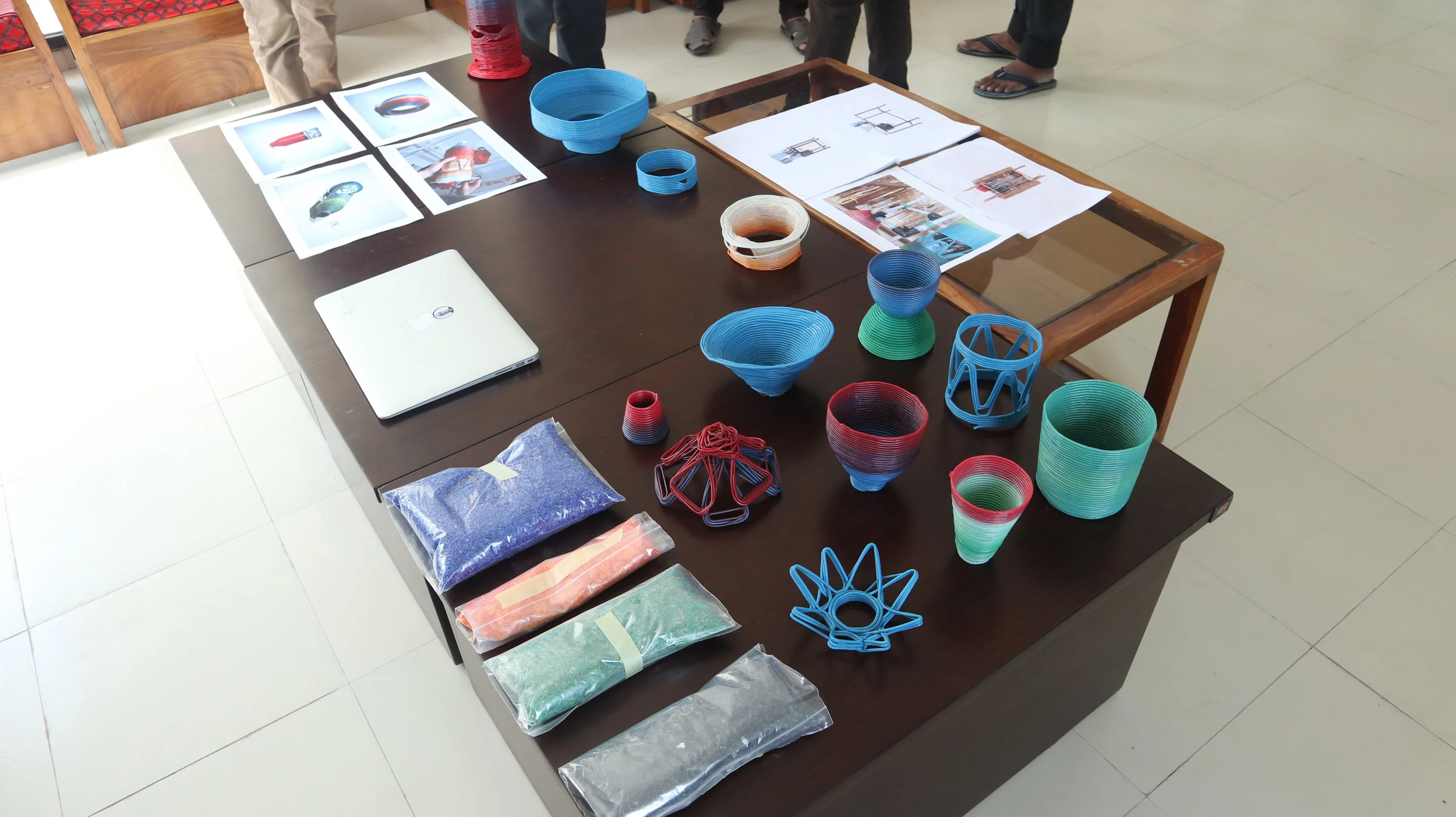Organic waste is not the only waste that gets processed at GARBAGEMAN's facility, there is plenty of plastic bottles, and low density packaging that they have collected, cleaned and stored for processing. Each piece a valuable resource that is waiting to be transformed into some else, a new story to be told.
Initially we were going to be using 3 Precious Plastic machines to shred the plastic and experiment with different possible material concepts that could be utilised for B2C or B2B products. However as the machines still have to arrived, we decided to see what we could create with the very basic of tools and a little creative thought. After a effective brainstorming session we identified 3 products we could design.
The first is a light shade, inspired from the 'IKEA Lotus Lamp'. We used 10 plastic PET bottles of Sprite, cutting the individual petals with scissors and poking holes in specific areas for metal wire to be used to bind the whole thing together. It is made of 5 petals for each segment, with a total of 8 segments. The natural curve of the PET bottles gave a natural curve to the petals and the form of the lamp but its stiffness did not make it an effortless procedure.



The second product is a local street sweeper, which is used all over the country here in Bangladesh. The sweepers are made of the spine of dried palm leaves and are usually wrapped with electric tape to create a long handle that fits into the palm of your hand. We decided we could cut the 5 rounded edges off the bottom of a Sprite bottle and stuff the bottle with the same leaves, and then use a heat gun to shrink the bottle onto the end of the leaves creating a fixed grip.



The final design is a bag which we made from the left over LDPE plastic packaging which often covers sponge cakes at the local tea stalls here. After cleaning and drying the wrappings we placed them down on baking paper and used an iron to heat press the packaging together. When one piece was created we then fused them together using the same process. After some experimenting to find the right amount of plastic sheets needed to create a tougher material, we cut out a template for a tot bag and used a sewing machines at a local tailors shop to create the bag.

























